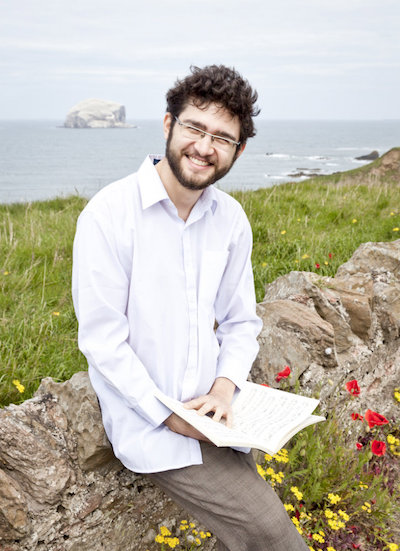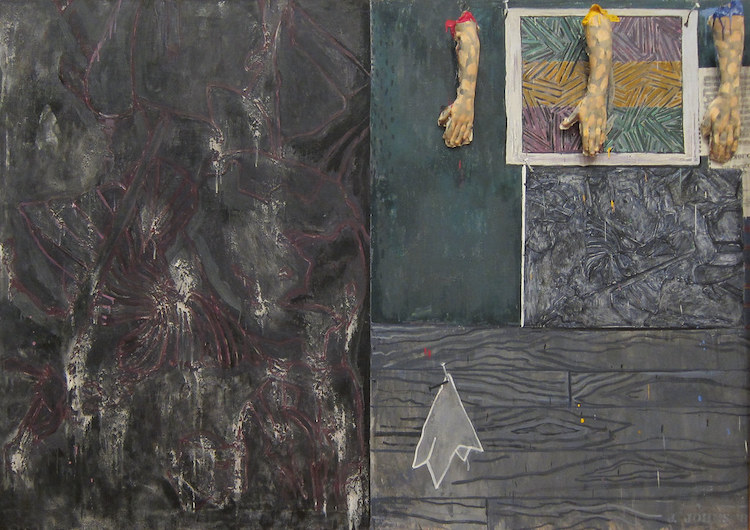by Jarrett Hoffman

For that we can thank two men: John Cage for inventing the prepared piano (in which objects placed among the strings alter the sound of the instrument), and Roman Rabinovich for playing Cage’s The Perilous Night on Saturday, June 22 during a 7:30 pm concert titled “Sei Solo (You Are Alone),” the sixth of the season for ChamberFest Cleveland.
The sounds that emerge from the instrument will surprise even the man looking down at the keys. “When you get to the prepared piano, it kind of blows your mind because nothing comes out the way you expect,” Rabinovich, winner of the 12th Arthur Rubinstein International Piano Master Competition, said during a recent interview. “It’s a beautiful effect and a very interesting way to approach the instrument.”
Like so many other leaps of creative faith, necessity was indeed the mother of invention when it came to the prepared piano. Commissioned to compose the music for Bacchanale, a dance by Syvilla Fort, Cage originally intended to write for percussion ensemble, but the hall was too small. In fact, only a grand piano was available.
He began to experiment, and realized it was possible “to place in the hands of a single pianist the equivalent of an entire percussion orchestra,” as Cage recounts in For The Birds: John Cage in Conversation with Daniel Charles. “With just one musician, you can really do an unlimited number of things on the inside of the piano if you have at your disposal an exploded keyboard.”
(A historical note: while Cage fully realized the prepared piano, he wasn’t the first to tinker with the instrument’s insides. Earlier pieces by Maurice Delage and Heitor Villa-Lobos involved minor preparation of the piano, and Cage himself noted the influence of Henry Cowell and his technique of directly touching the strings to make sound.)
The Perilous Night was Cage’s first large-scale work for prepared piano. It was written during a difficult time in his personal life — not long before he would separate from his wife Xenia — and through its six movements, he intended to express feelings of loneliness and terror.
That turned out not to be clear to audiences at the time. Asked if he hears those emotions in the work, Rabinovich said, “It’s tricky to talk about music in such terms — the emotions are much more complex than what you can express with words. But I do hear a haunting, kind of surreal atmosphere.”
That led us into discussing a friend of Cage’s: Jasper Johns, whose 1982 diptych Perilous Night (below) includes a silkscreen of a page from Cage’s score. “With Johns’ works there’s a certain emotional distance, which I think Cage also has in his music,” Rabinovich said. “It’s definitely not Romanticism — it’s a very different way of looking at materials and sounds.”
(It should be noted that Rabinovich is himself a talented artist with a passion for sketching. Visit his website to see some of his recent drawings and pastels.)
Rabinovich had a light first week at ChamberFest, but his schedule heats up down the stretch — he’ll be featured in five of the final six concerts. Asked what he would like to highlight, he responded with a laugh, “Everything. Each program has a little twist to it.”
Among his remaining duties, on June 25 he’ll play Dohnányi’s Sextet for clarinet, horn, violin, viola, cello, and piano. “It’s a terrific piece,” he said. “Very humorous, and for an unusual combination of instruments.” June 22 brings “a masterpiece,” Brahms’ Horn Trio. And on June 23 he’ll take on Bartók’s Rhapsody No. 1 “with a talented young violinist, Nathan Meltzer.”
In addition to Brahms and Cage, the June 22 program includes the Adagio from Bach’s Violin Sonata No. 1 in g and Mendelssohn’s String Quartet No. 6 in f — works that all had their genesis in the loss or death of someone the composer loved. Patrick Castillo will give a pre-concert talk at 6:45 pm. Tickets are available here.
Published on ClevelandClassical.com June 17, 2019.
Click here for a printable copy of this article



